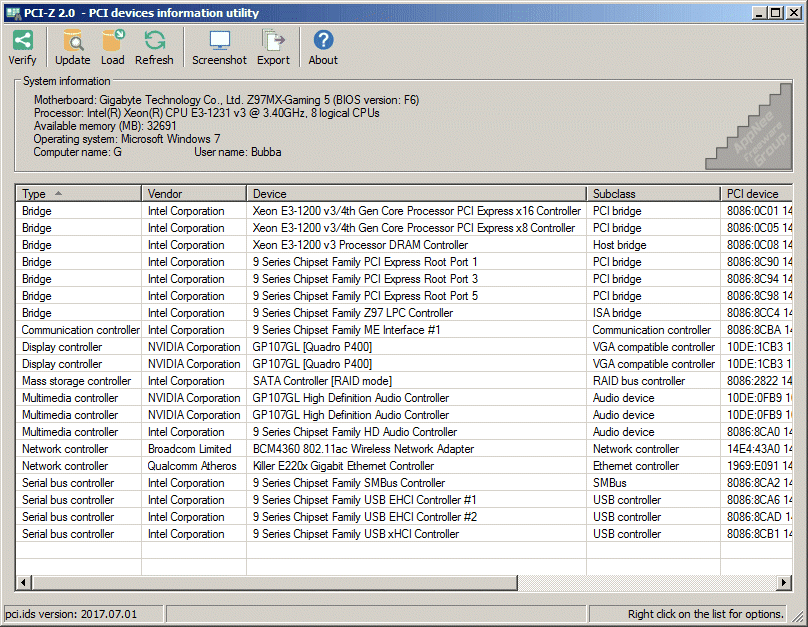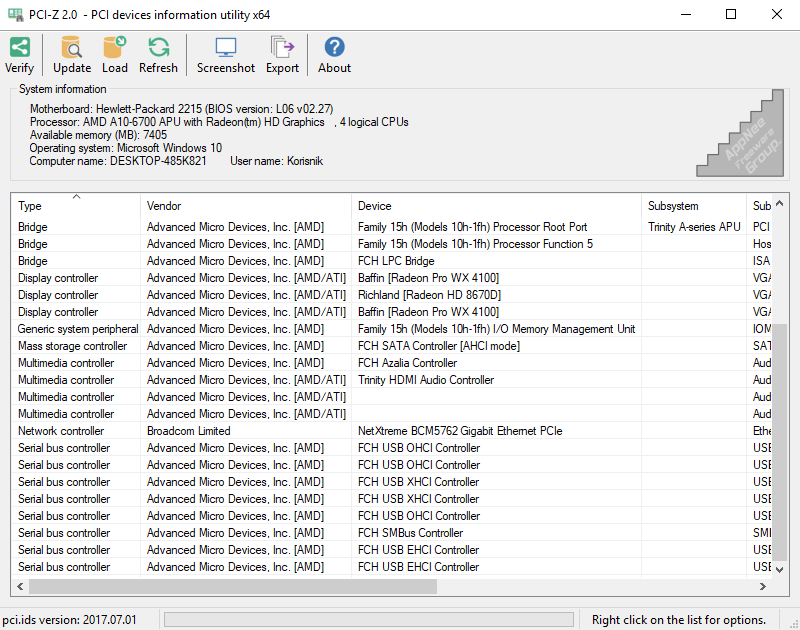| Ⅰ | This article along with all titles and tags are the original content of AppNee. All rights reserved. To repost or reproduce, you must add an explicit footnote along with the URL to this article! |
| Ⅱ | Any manual or automated whole-website collecting/crawling behaviors are strictly prohibited. |
| Ⅲ | Any resources shared on AppNee are limited to personal study and research only, any form of commercial behaviors are strictly prohibited. Otherwise, you may receive a variety of copyright complaints and have to deal with them by yourself. |
| Ⅳ | Before using (especially downloading) any resources shared by AppNee, please first go to read our F.A.Q. page more or less. Otherwise, please bear all the consequences by yourself. |
| This work is licensed under a Creative Commons Attribution-NonCommercial-ShareAlike 4.0 International License. |

PCI-Z is a hardware device information viewing and detection tool similar to CPU-Z and GPU-Z. They are both very simple and compact free tools for Windows. The difference is that it is used to view detailed information of various PCI devices, including detecting information about various unknown PCI/PCI-E/PCI-X devices installed on a computer, even if your Device Manager cannot identify them.
Its primary purpose is to detect unknown hardware on Windows-based PCs and assist users in identifying the vendor, device, and other relevant details about the device, even in the absence of installed drivers. It leverages the The PCI ID Repository, a publicly accessible repository containing all known IDs associated with PCI devices, including vendors, devices, subsystems, and device classes.
By utilizing this repository, PCI-Z enables the display of user-friendly, human-readable names instead of obscure numeric codes, similar to the functionality offered by the lspci Linux command. Notably, PCI-Z offers full support for Windows operating systems, making it a reliable resource for locating drivers for various PCI peripherals such as Wi-Fi cards, audio cards, network cards, and more.
PCI-Z can run on Windows XP and higher, Windows Server 2003 and higher, and Windows PE. For older operating systems (such as Windows 2000, Windows Server 2000, BartPE, Reatogo, ReactOS), you can use the legacy version (v1.31).

// Key Features //
- Detects all PCI/PCI-X/PCI-E cards, even if your device manager doesn’t recognizes them
- One file only needed for running – 100% portable, no installation needed, no Internet connection needed (except for automatic database update)(
- “lspci for Windows” – familiar lspci-like tool from Linux in both GUI and CLI form on Windows
- Helps you find drivers for your unknown PCI devices on Windows
- Reports devices with drivers issues
- Daily updates with PCI ID database
- Small size, small memory footprint
- Spyware/malware free
- Freeware!
// Related Links //
// Download URLs //
| License | Version | Download | Size |
| Freeware | Latest |  |
n/a |
(Homepage)
| If some download link is missing, and you do need it, just please send an email (along with post link and missing link) to remind us to reupload the missing file for you. And, give us some time to respond. | |
| If there is a password for an archive, it should be "appnee.com". | |
| Most of the reserved downloads (including the 32-bit version) can be requested to reupload via email. |